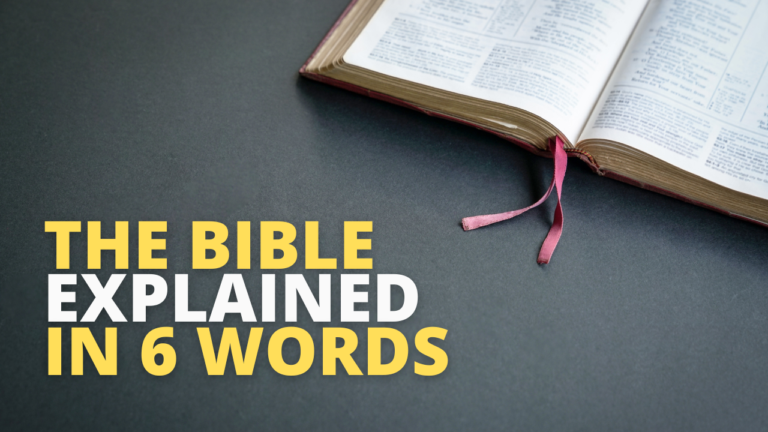Bad Sermon Math – 4 Ways We Misuse the Bible

Are you guilty of bad sermon math?
No, I’m not talking about actual math. By sermon math I mean applying some form of change on the scripture you preach.
Let me explain what I mean. There are four types of sermon math that will get you in trouble every time.
+ Addition
Addition happens in preaching when you add your own opinions or thoughts onto the Bible as if it is a commandment.
For example, if I were to preach Ephesians 5:18 which says,
“And do not get drunk with wine, for that is debauchery, but be filled with the Spirit” (ESV).
Many pastors will preach this sermon and talk about how drinking alcohol is a sin. They will even tell their churches that good Christians never drink alcohol. But is that what this verse really says?
This verse says “do not get drunk.” It doesn’t say anything about all consumption of alcohol being a sin. Anything I were to add on to that would be my own opinion. It might be a good suggestion or a helpful practice to abstain from alcohol, but I cannot make it a Biblical mandate for all Christians.
This is addition.
The Pharisees were great at this. They added hundreds of rules on top of the Bible.
– Subtraction
Subtraction happens in preaching when you subtract a section from the Bible because you either don’t want to deal with it or wish it weren’t in the Bible in the first place.
Subtraction can easily be excused as trying to make the sermon more “seeker friendly” or not trying to get bogged down in the details. However, this can be a dangerous practice when we begin to pick and choose what parts of Bible verses we preach.
For example, let’s say I’m preaching John 3 about Jesus’ conversation with Nicodemus. I will definitely cover John 3:16, but I may be tempted skip over 3:18 because it is highly offensive.
“Whoever believes in him is not condemned, but whoever does not believe stands condemned already because they have not believed in the name of God’s one and only Son.” (John 3:18 NIV)
It is easy to preach, “God loves you and wants to give you the gift of eternal life if you only believe in Him.”
It is offensive to preach, “If you don’t believe in Jesus you are condemned to Hell.”
Preaching the whole chapter, but skipping this verse is subtraction.
(Note: I am not saying that you can’t just preach John 3:16 in a sermon. I am talking about picking and choosing verses in a larger block of text. I have preached many sermons where I used John 3:16 as a supporting text.)
Most of the time subtraction is cowardice. We omit a verse because we are afraid to handle sensitive subjects.
/ Division
Division happens in preaching when we divide a text from it’s context.
This is extremely common in preaching. We find a really inspirational verse and preach it without any thought to what the original author intended the verse to mean.
I may get some pushback here, but the verse that I think is most commonly divided from its context is Jeremiah 29:11.
Jeremiah 29:11 says,
“For I know the plans I have for you,’ declares the Lord, ‘plans to prosper you and not to harm you, plans to give you hope and a future.” (NIV)
What a great promise from God. This verse preaches. However, I rarely hear it mentioned that this verse comes after God says in 29:10 that they will first be sentenced to exile in Babylon for 70 years.
Preaching Jeremiah 29:11 saying, “God always makes your life better,” is division. It is more truthful to say that, “Even though life is often extremely difficult and God sometimes allows bad things to happen to you, God still has a plan for you. There is still hope.”
It is our job to teach people how to read the Bible in it’s full context. There are enough problems with Christians taking verses out of context. Please don’t add to the problem.
Dividing the text from its context is almost always a recipe for bad theology.
* Multiplication
Multiplication happens in preaching when we multiply an issue into a much bigger issue than it should be.
Multiplication most often happens when pastors preach about particular sins. For example, a pastor may go off on people who practice homosexuality (which is clearly a sin according to the Bible).
However, by harping on this sin and not others, a pastor is multiplying the severity of only this sin. This goes against 1 Corinthians 6:9-10, which puts sexual immorality, adultery, homosexuality, stealing, drunkenness, slander, and other sins all in the same boat.
Another example of multiplication is a pastor who preaches about the end-times and says that true Christians are premillennial (as opposed to postmillennial or amillennial). Although there are legitimate arguments for different views of end-times theology, these are minor issues that don’t necessarily need to be majored in as a division between true believers.
We must be careful not to multiply a small part of scripture into something bigger than it was intended to be.
What other examples of bad sermon math have you seen?




Thanks for getting to the root of the issue. If I were to add anything to this it would only subtract from the simplicity and conciseness of your observations. The suggestions may be received by some as divisive but I pray you continue to multiply your posts. They are equally interesting. Or maybe I am just square.